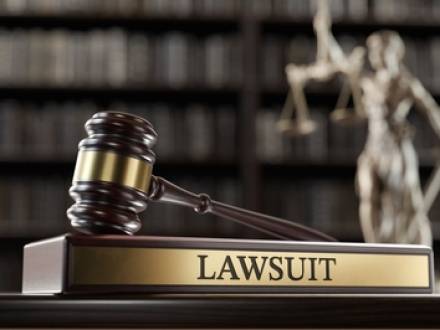Should You File Chapter 7 Before or After a Lawsuit?
 Perhaps you have just been served with a lawsuit for unpaid debt. Whether related to credit card debt, personal loans, or medical bills, a lawsuit causes fear and panic for most people. What will happen if your wages are garnished?
Perhaps you have just been served with a lawsuit for unpaid debt. Whether related to credit card debt, personal loans, or medical bills, a lawsuit causes fear and panic for most people. What will happen if your wages are garnished?
Could a lien be placed on your home, or your bank accounts frozen? If you find yourself in such a situation, you should know that filing Chapter 7 bankruptcy can potentially stop a lawsuit, but the timing of your bankruptcy filing is crucial.
Whether you should file before your lawsuit proceeds or wait depends on your specific situation. Making the wrong choice can be financially costly and may also result in the loss of certain rights. To avoid making a misstep, consulting with an experienced Charlotte, NC bankruptcy attorney is your best course of action.
Understanding Debt Lawsuits in North Carolina
In North Carolina, creditors can file a complaint in civil court for unpaid debts. The debtor will receive a summons and complaint and must file a written answer with the court, responding to each numbered paragraph in the complaint (admit, deny, or state lack of knowledge).
Should the creditor win the lawsuit, a judgment is issued against the debtor. If the debtor fails to respond, a default judgment (Rule 55) is entered. This judgment allows creditors to pursue wage garnishment, levies, and liens, although wage garnishment is generally limited in the state.
How Can Filing Chapter 7 Bankruptcy Help After a Lawsuit is Filed?
The automatic stay in Chapter 7 bankruptcy immediately stops all lawsuits and collection actions. This means creditors cannot harass, send collection letters, or call debtors. If a creditor has already won a judgment, the automatic stay prevents them from enforcing it through liens, bank levies, seizing property, or wage garnishments. The bankruptcy then discharges, or erases, the debt.
This provides permanent relief for eligible debts and can legally erase the obligation to repay unsecured debts, even those that were part of a lawsuit. Through Chapter 7 bankruptcy, a permanent injunction is filed that prevents creditors from taking collection actions, including filing or continuing a lawsuit to collect a debt that has been discharged. If a creditor filed a property lien, that lien may not automatically disappear through Chapter 7 discharge. A lien avoidance motion must be filed in the bankruptcy court to remove the lien.
What About Filing Chapter 7 Bankruptcy Before a Lawsuit is Filed?
Filing Chapter 7 bankruptcy before creditors file a lawsuit is the best option, whenever possible. The automatic stay that is put into place once Chapter 7 bankruptcy is filed prevents most creditors from pursuing collection activity, including filing a lawsuit. Filing for bankruptcy before a lawsuit is filed can prevent liens against the debtor’s property, while protecting bank accounts and wages.
This keeps creditors from filing for wage garnishment or taking money from the debtor’s bank account through a bank levy. There is one exception that could allow a creditor to work around Chapter 7 bankruptcy. If the creditor alleges fraud on the part of the debtor or if the lawsuit already filed alleged fraud, then the creditor can argue in bankruptcy court that the debt should not be discharged.
Contact a Mecklenburg County, NC Chapter 7 Bankruptcy Attorney
If you are facing a creditor lawsuit in North Carolina, it is important to consult with a qualified Charlotte, NC bankruptcy lawyer from Blossom Law PLLC as soon as possible. Your bankruptcy attorney will thoroughly evaluate your financial situation, including the lawsuit, and help you determine whether filing Chapter 7 bankruptcy is the right choice for you.
You should never ignore a creditor lawsuit. Acting quickly and consulting a professional gives you the best chance of protecting your assets. Attorney Blossom can help you get back on track financially and will guide you through the bankruptcy process while answering all your questions. To schedule your initial consultation, call 704-256-7766.


 704-BLOSSOM
704-BLOSSOM

